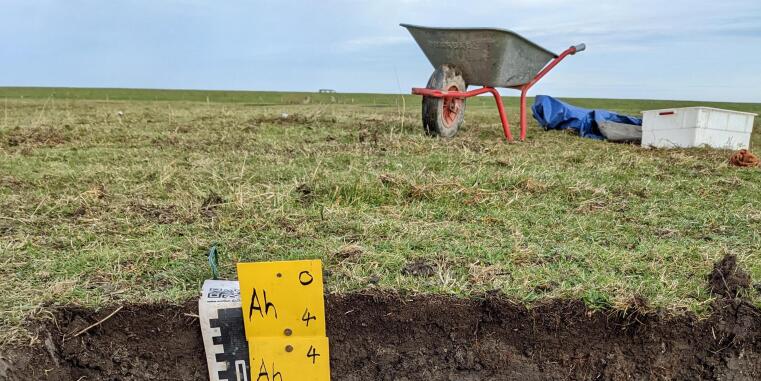















The Rhizosphere Biogeochemistry group conducts both fundamental and management-oriented research on rhizosphere and soil carbon cycling, mostly in carbon-rich wetland and marsh ecosystems of Northern Germany and the Mid-Atlantic region of the United States. Our fundamental research lines investigate the interactions of plant roots and soil microbiota and their consequences for ecosystem greenhouse-gas dynamics and the stability of soil carbon stocks. For this, we combine a wide array of tools from the fields of plant ecology, biogeochemistry, and microbial ecology. Our applied work explores the potential to increase carbon sequestration in the coastal zone, i.e. Blue Carbon, through restoration or management of coastal wetland ecosystems. The extremely high carbon value per area of coastal wetlands provides great opportunities to integrate existing land-use and rehabilitation activities with natural climate solutions and thus, with economically relevant C-crediting programs.
Current Research Projects
RELATE (Rhizosphere mediation of biosphere-climate feedbacks)
The Rhizosphere Biogeochemistry group structures its research primarily along the objectives of the DFG Emmy Noether project RELATE. The project’s mission is to advance the mechanistic understanding of biosphere-climate feedbacks by investigating the carbon cycle of wetland rhizospheres. Important project partners are the groups of Klaus-Holger Knorr (ILÖK, Münster), Susanne Liebner (GFZ Potsdam), Pat Megonigal (Smithsonian), and Kai Jensen (Universität Hamburg).
SEAL-C (Stability of Wadden Sea Blue Carbon Stocks)
SEAL-C uses a unique field experimental platform to assess the stability of coastal soil carbon stores in response to rising temperatures through investigations of microbial dynamics in relation to soil depth. SEAL-C is funded by Stifterverband für die Deutsche Wissenschaft and is a cooperation project with the Plant Ecology group at Hamburg University.
sea4soCiety (Searching for solutions for carbon sequestration in coastal ecosystems)
This collaborative project of ten research institutions across northern Germany, funded through DAM/BMBF, determines the carbon-storage potential of coastal ecosystems along the German coasts (focusing on salt marshes, seagrass beds, and seaweed) as well as in tropical Colombia and Indonesia (focusing on mangroves, salt marshes, and seagrass beds).
GREENTRIALS (Greenhouse-gas fluxes in Wadden Sea tidal marshes – a trilateral (NL, DE, DK) assessment of Natural Climate Solutions)
GREENTRIALS is funded by Stifterverband für die Deutsche Wissenschaft investigates different management and conservation practices in the Wadden Sea region from the perspective of natural climate solutions in a trilateral (DK, DE, NL) assessment.